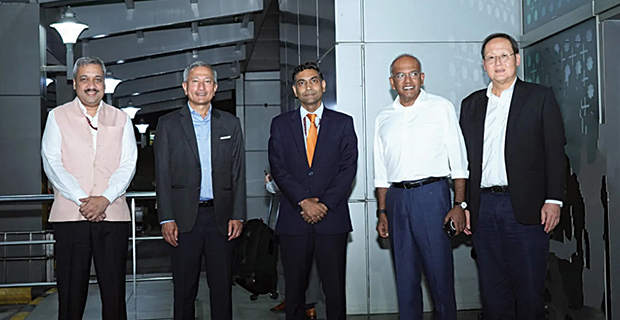India–Singapore Cooperation
India and Singapore are advancing a comprehensive partnership aimed at economic resilience and Indo-Pacific stability.
New Delhi: The India–Singapore relationship is evolving into a deepening partnership, with New Delhi reshaping its diplomacy to serve a clear economic and strategic purpose in today’s unpredictable world.
In an era of fragile supply chains, volatile trade rules, and climate challenges, India is bolstering foreign economic policy with trusted, capable, and strategically located partners—Singapore being central to this vision, according to India Narrative.
The Third India–Singapore Ministerial Roundtable (ISMR) here is poised to add fresh impetus. It will gather Indian ministers Dr S. Jaishankar, Nirmala Sitharaman, Ashwini Vaishnaw, and Piyush Goyal with a senior Singaporean delegation led by Deputy PM Gan Kim Yong and Foreign Minister Vivian Balakrishnan. Launched in 2022, this unique forum aims to chart the next phase of cooperation under the Comprehensive Strategic Partnership—pinpointing tangible avenues to expand and deepen ties.
Both nations are cooperating on semiconductors, green infrastructure, digital integration, advanced manufacturing, healthcare innovation, and maritime connectivity. The relationship strengthened in 2024 with the launch of the Comprehensive Strategic Partnership. For India, connecting with Singapore’s logistics chains and financial networks means tapping into a global value chain with fewer operational and political risks.
Joint work could offer a credible alternative to existing chip-making hubs, making the supply chain more secure and resilient, positioning India as a key player in critical technology. The Semiconductor Ecosystem Partnership best illustrates this intent.
Singapore’s balanced foreign policy makes it especially valuable for India’s rebalancing strategy. It maintains close trade links with China, yet collaborates with others on security and technology, providing India a safe, non-confrontational route into ASEAN markets and Indo-Pacific frameworks without binary rivalries. India gains access and influence, while Singapore secures a partner with growth potential and security capabilities.
Green transition is another shared focus. Singapore’s clean-energy financing and technology expertise complement India’s renewable ambitions, enabling cooperation on solar power, green hydrogen, and sustainable cities. The Green Digital Shipping Corridor, launched in 2025, is about aligning trade routes with evolving environmental standards that will shape global business. Low-carbon, digitally managed shipping aids India’s climate goals and economic interests.
People-centric initiatives remain important. Agreements on healthcare, digital health systems, skill training, and education exchange seek to develop a cross-border talent pool ready for future industries. Singapore’s emphasis on skill alignment and India’s labour-force modernisation make this a people-to-people partnership beyond political cycles.
Digital integration is another priority. Linking India’s digital economy with Singapore’s advanced fintech, cyber security, and payment systems can enhance trust in cross-border data and financial flows. This bolsters trade efficiency and India’s standing as a technology partner in the Indo-Pacific.
The broader picture is of middle powers collaborating to provide public goods benefiting the Indo-Pacific. Open, secure sea lanes, diverse and reliable supply chains, and sustainable infrastructure not only serve both nations’ interests but also promote regional stability. India advances its Act East Policy by creating economic and strategic options rather than relying on conflict.
— Bureau Report











Comments.